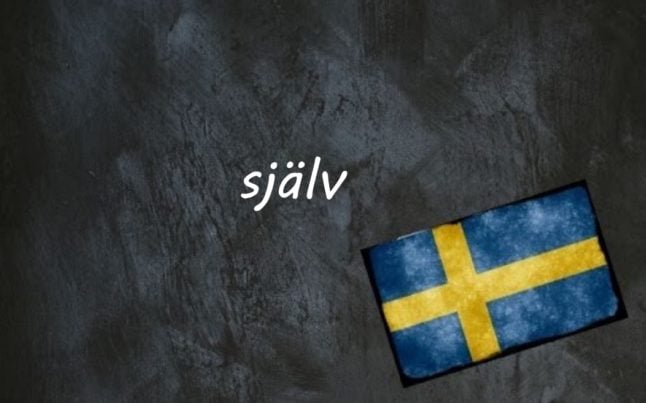First, readers nominated their favourite Swedish words on Facebook, Twitter and via a survey on The Local. Our editorial team then compiled a shortlist of ten words, based on the number of nominations the word received and our own decision whenever a tiebreaker was needed.
To pick the final winner, readers were given the chance to upvote their favourite word in a poll of the shortlist of ten. We received more than 2,700 upvotes (although it would have been possible for one person to vote several times via different devices or by opening their browser in private mode).
And the winner is: Tjena.
Pronounced a bit like shay-nah, tjena is one of those words that allows you to level up your Swedish and fake fluency when greeting someone. It is a more casual and familiar word for hej ('hello'), but works in almost all situations with perhaps the exception of meeting in-laws or a new boss for the first time.
“The sound has a touch of dearness, when I hear this word my heart smiles,” said The Local's reader Jyothi Pala from India, who was among those who nominated tjena to the competition.
While seen as an informal greeting today, tjena actually has a more interesting history than you think, and can be traced back to the 18th century as the phrase mjuka tjänare ('humble servant').
The runner-up in the competition perhaps comes as not much of a surprise: lagom.
Meaning 'not too much, not too little', lagom is one of the few Swedish words most non-Swedish speakers have heard of. You may have tired of it as buzzword that signifies the laidback Swedish lifestyle and the oft-cited claim that it is untranslatable (one of The Local's writers disagrees), but clearly it still has plenty of fans. Mulana from Indonesia, one of the many readers who nominated it, wrote: “It is a good way of thinking that we are equal with others. And we are no more special than others. It makes us respect others.”
Rounding off the top three is ö, one of the shortest words in the Swedish dictionary.
Ö means 'island'. “It's one letter long but because Sweden has lots of water bodies and thus islands, you see ö everywhere,” wrote Robin Joseph from India, who was one of several who nominated the word.
Many thanks to everyone who took part. Here are the full results:
!function(){“use strict”;window.addEventListener(“message”,(function(a){if(void 0!==a.data[“datawrapper-height”])for(var e in a.data[“datawrapper-height”]){var t=document.getElementById(“datawrapper-chart-“+e)||document.querySelector(“iframe[src*='”+e+”‘]”);t&&(t.style.height=a.data[“datawrapper-height”][e]+”px”)}}))}();



 Please whitelist us to continue reading.
Please whitelist us to continue reading.
How about asking people what is their least favourite word in Swedish ?